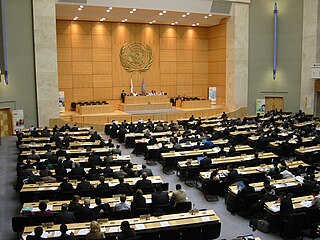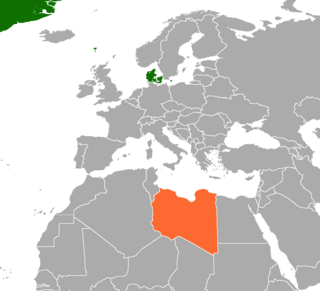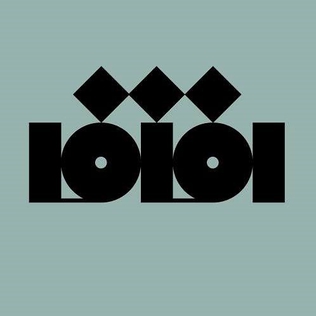Related Research Articles

The World Summit on the Information Society (WSIS) was a two-phase United Nations-sponsored summit on information, communication and, in broad terms, the information society that took place in 2003 in Geneva and in 2005 in Tunis. WSIS Forums have taken place periodically since then. One of the Summit's chief aims is to bridge the global digital divide separating rich countries from poor countries by increasing internet accessibility in the developing world. The conferences established 17 May as World Information Society Day.

Agence France-Presse (AFP) is a French international news agency headquartered in Paris, France. Founded in 1835 as Havas, it is the world's oldest news agency.

Citizen journalism, also known as collaborative media, participatory journalism, democratic journalism, guerrilla journalism or street journalism, is based upon public citizens "playing an active role in the process of collecting, reporting, analyzing, and disseminating news and information." Similarly, Courtney C. Radsch defines citizen journalism "as an alternative and activist form of news gathering and reporting that functions outside mainstream media institutions, often as a response to shortcomings in the professional journalistic field, that uses similar journalistic practices but is driven by different objectives and ideals and relies on alternative sources of legitimacy than traditional or mainstream journalism". Jay Rosen offers a simpler definition: "When the people formerly known as the audience employ the press tools they have in their possession to inform one another." The underlying principle of citizen journalism is that ordinary people, not professional journalists, can be the main creators and distributors of news. Citizen journalism should not be confused with community journalism or civic journalism, both of which are practiced by professional journalists; collaborative journalism, which is the practice of professional and non-professional journalists working together; and social journalism, which denotes a digital publication with a hybrid of professional and non-professional journalism.
The Tunisia Monitoring Group (IFEX-TMG) is a coalition of 21 free-expression organisations that belong to the International Freedom of Expression Exchange (IFEX), a global network of non-governmental organisations that promotes and defends the right to freedom of expression and freedom of the press.
SciDev.Net is a not-for-profit organisation that produces news, views and analysis about science and technology in the context of global development. It primarily engages with development professionals, policymakers, researchers, the media and the informed public.
Project Syndicate is an international media organization that publishes and syndicates commentary and analysis on a variety of global topics. All opinion pieces are published on the Project Syndicate website, but are also distributed to a wide network of partner publications for print. As of 2019, it has a network of 506 media outlets in 156 countries.

Internet censorship is the legal control or suppression of what can be accessed, published, or viewed on the Internet. Censorship is most often applied to specific internet domains but exceptionally may extend to all Internet resources located outside the jurisdiction of the censoring state. Internet censorship may also put restrictions on what information can be made internet accessible. Organizations providing internet access – such as schools and libraries – may choose to preclude access to material that they consider undesirable, offensive, age-inappropriate or even illegal, and regard this as ethical behaviour rather than censorship. Individuals and organizations may engage in self-censorship of material they publish, for moral, religious, or business reasons, to conform to societal norms, political views, due to intimidation, or out of fear of legal or other consequences.

RT Arabic, formerly known as Rusiya Al-Yaum is a Russian state-owned free-to-air television news channel broadcasting in Arabic and headquartered in Moscow, Russia. Rusiya Al-Yaum started broadcasting on 4 May 2007. The parent company of RT Arabic is TV-Novosti, which is an Autonomous Non-Commercial Organization owned by the Russian Federation.
Demotix was a photo agency that enabled freelance photojournalists to license their photos to mainstream media organisations, charities, and stock image buyers.
Free speech in the media during the Libyan civil war describes the ability of domestic and international media to report news inside Libya free from interference and censorship during the civil war.

Denmark–Libya relations refers to the current and historical relations between Denmark and Libya. Bilateral relations are tense because of the Jyllands-Posten Muhammad cartoons controversy and the 2011 military intervention in Libya. Denmark is represented in Libya, through its embassy in Cairo, Egypt. Danish Foreign Minister Villy Søvndal visited Libya in February 2012, for the opening of the new representative office in Tripoli.

Libyan refugees are people who fled or were expelled from their homes since the beginning of the Libyan Crisis in 2011, including during the First Libyan Civil War, that deposed Muammar Gaddafi in 2011, and the Second Libyan Civil War (2014–2020). Many people have been displaced from Libya to neighbouring Tunisia, Egypt and Chad, as well as to European countries across the Mediterranean. The majority of refugees from Libya are Arabs, though many others are sub-Saharan African migrants who were living in Libya. These groups were also among the first refugee waves to exit the country. The total number of Libyan refugees was estimated at around one million in June 2011, with most returning to Libya after the First Civil War ended. In January 2013, there were 5,252 refugees originating from Libya alongside 59,425 internally displaced persons registered by the UNHCR.

Nawaat is an independent collective blog co-founded by Tunisians Sami Ben Gharbia, Sufian Guerfali and Riadh Guerfali in 2004, with Malek Khadraoui joining the organization in 2006. The goal of Nawaat's founders was to provide a public platform for Tunisian dissident voices and debates. Nawaat aggregates articles, visual media, and other data from a variety of sources to provide a forum for citizen journalists to express their opinions on current events. The site does not receive any donations from political parties. During the events leading to the Tunisian Revolution of 2011, Nawaat advised Internet users in Tunisia and other Arab nations about the dangers of being identified online and offered advice about circumventing censorship. Nawaat is an Arabic word meaning core. Nawaat has received numerous awards from international media organizations in the wake of the Arab Spring wave of revolutions throughout the Middle East and North Africa.
zenith is an independent German-language magazine which focuses on the Arab and Islamic world. The magazine is published quarterly and addresses politics, economics, culture, and society in the Middle East, North Africa and Central Asia as well as the Muslim world more generally.

Hans-Joachim Spremberg was an East German news photographer with the state news agency. His photographs documented high-profile state occasions along with daily life in East Berlin. He died as the result of a helicopter accident while on an assignment in Libya.

Daniel Gerlach is a German author, journalist, publisher and Middle East expert. He is the current editor-in-chief of the German Middle East quarterly magazine zenith and director-general of the Candid Foundation.

Candid Foundation is a private non-for-profit organisation working in the fields of intercultural dialogue, media, research and development. It was founded in 2014 in Berlin. The organization focuses on the countries of the Southern Mediterranean, Western Asia and the wider MENA region.
Mohamed Al-Rufrafi, an Arab poet, writer, media and translator living in exile, born in Tunis, 2 December 1950, resided in several countries before settling in France in 1984. In parallel with the journalistic work, he devoted his work to writing, translating and various cultural and artistic events, from Paris and through European and Arab cities.

The Arab Fund for Arts and Culture (AFAC) (Arabic: الصندوق العربي للثقافة والفنون) is an independent, non-profit NGO that funds individuals and cultural organizations in the Arab region. By awarding grants for partial funding of cultural projects and other forms of support, AFAC facilitates projects in the fields of cinema, performing arts, literature, music and visual arts, and encourages cultural exchange, research and cooperation across the Arab region and globally.
References
- ↑ "من نحن | ليبيا المحلية".
- ↑ Echter Einblick in Libyen swr.de [ dead link ]
- ↑ "Current Projects — The CANDID Foundation". www.candid-foundation.org. Archived from the original on 27 December 2014.
- ↑ "Libya | Country report | Freedom of the Press | 2016". freedomhouse.org. Archived from the original on 5 February 2017.
- 1 2 Gerster, Livia. "Junge Journalisten in Libyen: Mit bloßen Händen Bomben entschärfen". Faz.net.
- ↑ "Junge Libyer haben die Politik satt". Neue Zürcher Zeitung . Retrieved 18 August 2023.